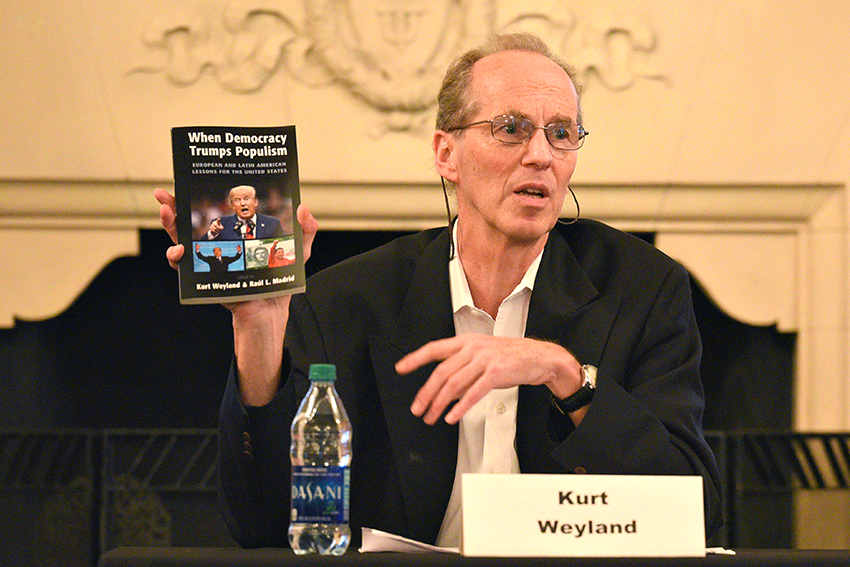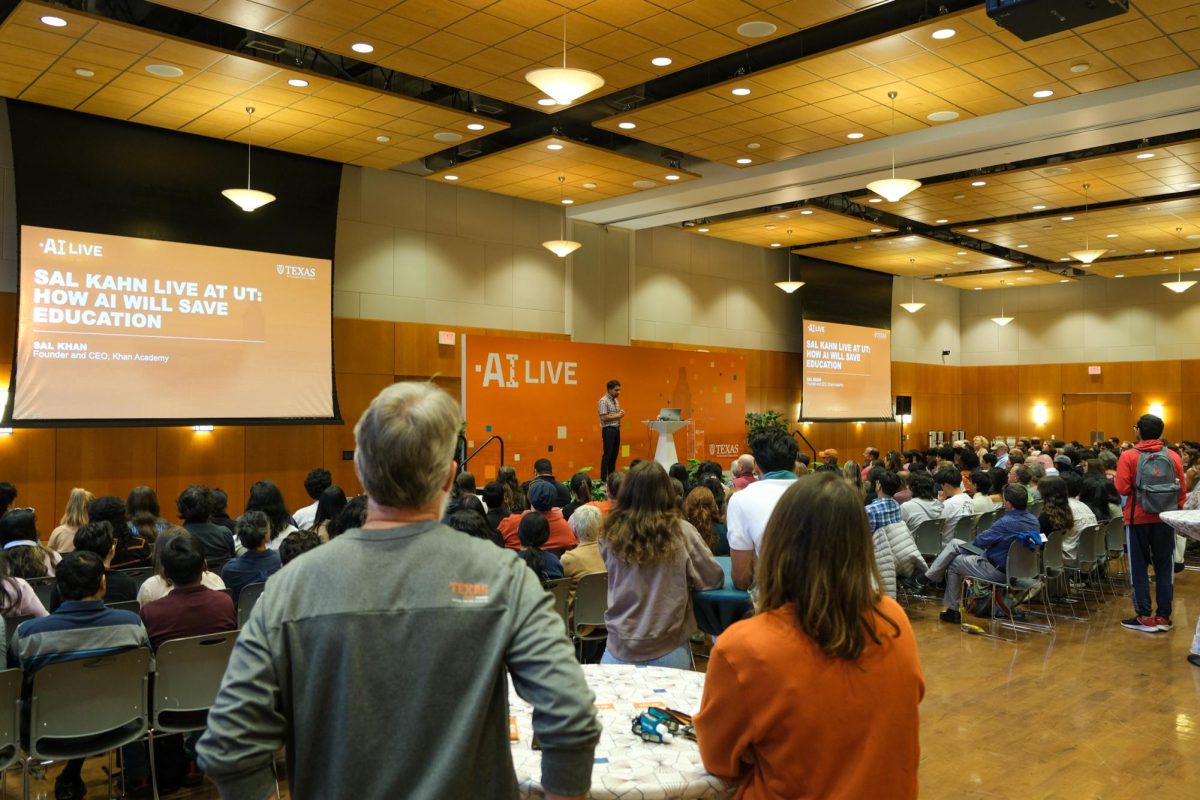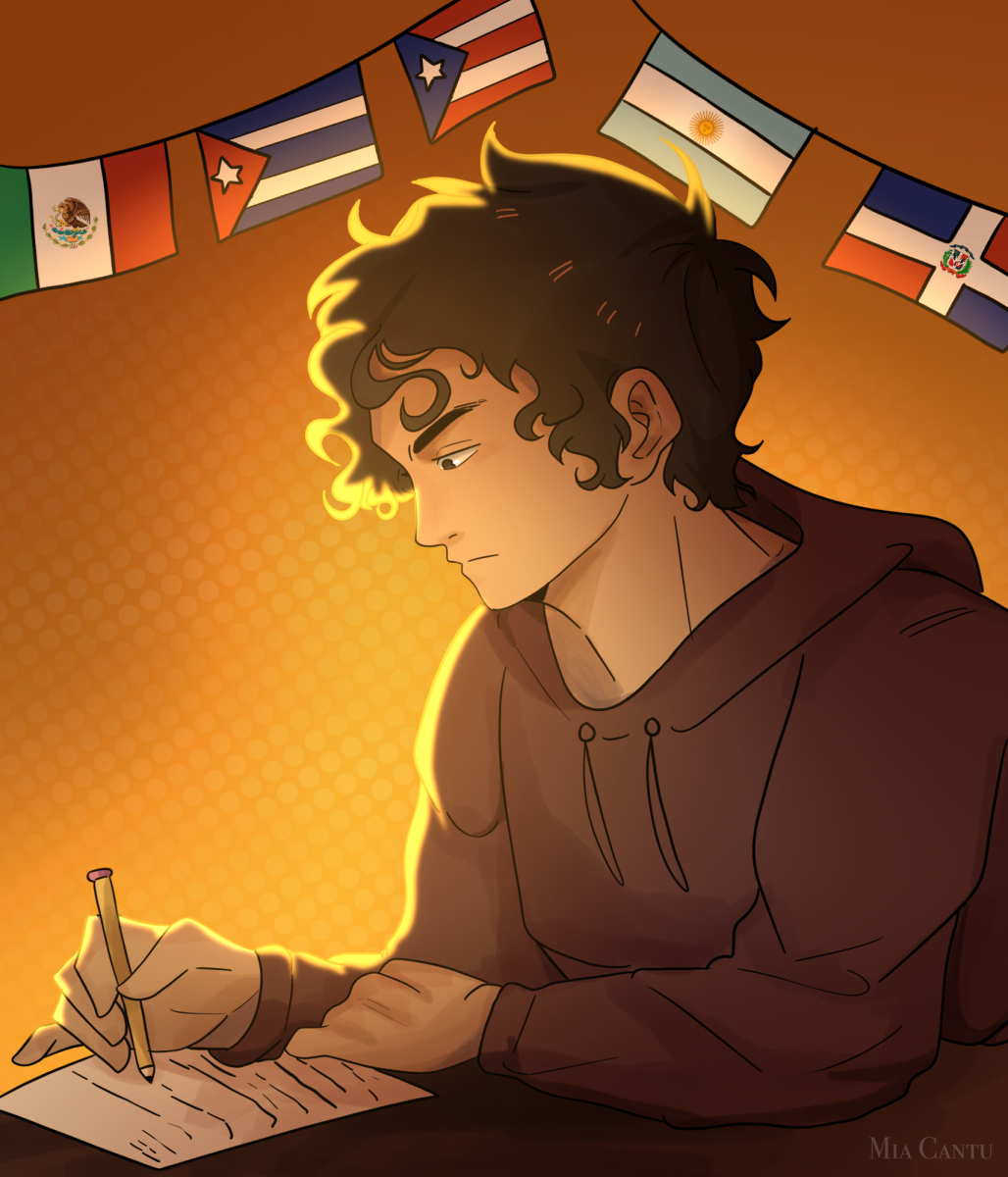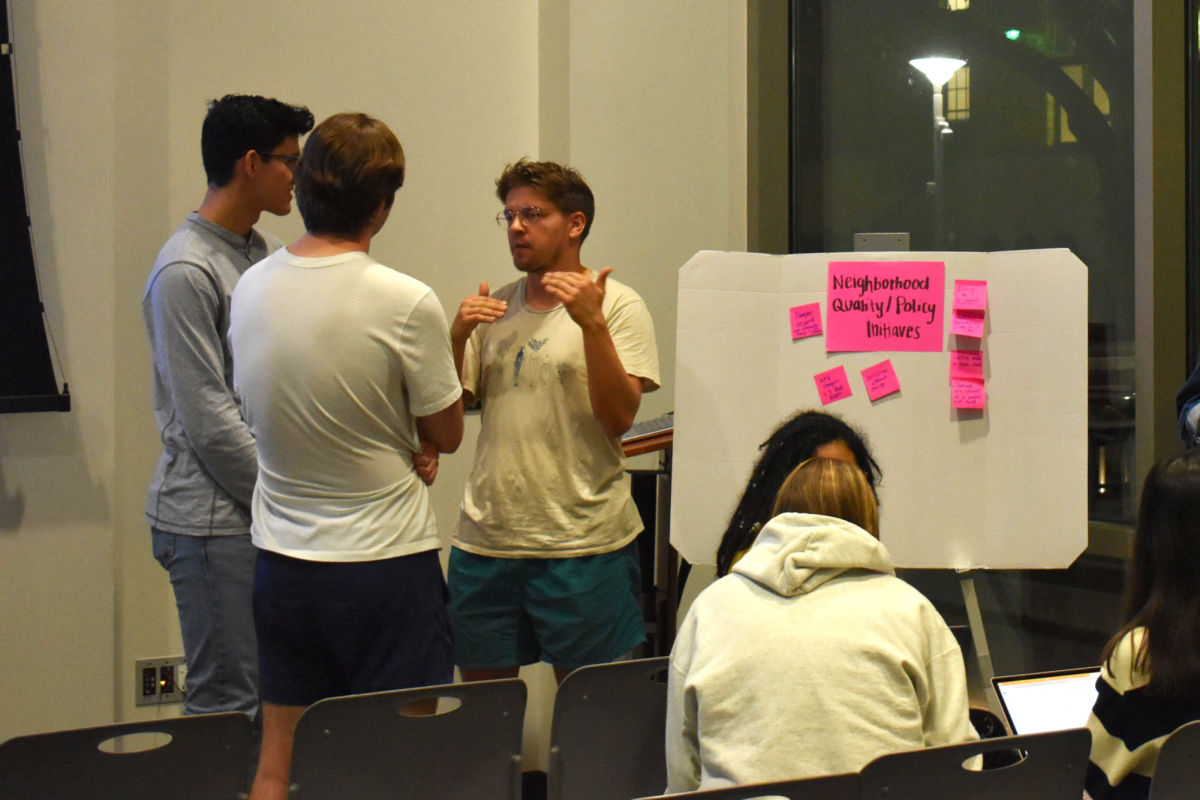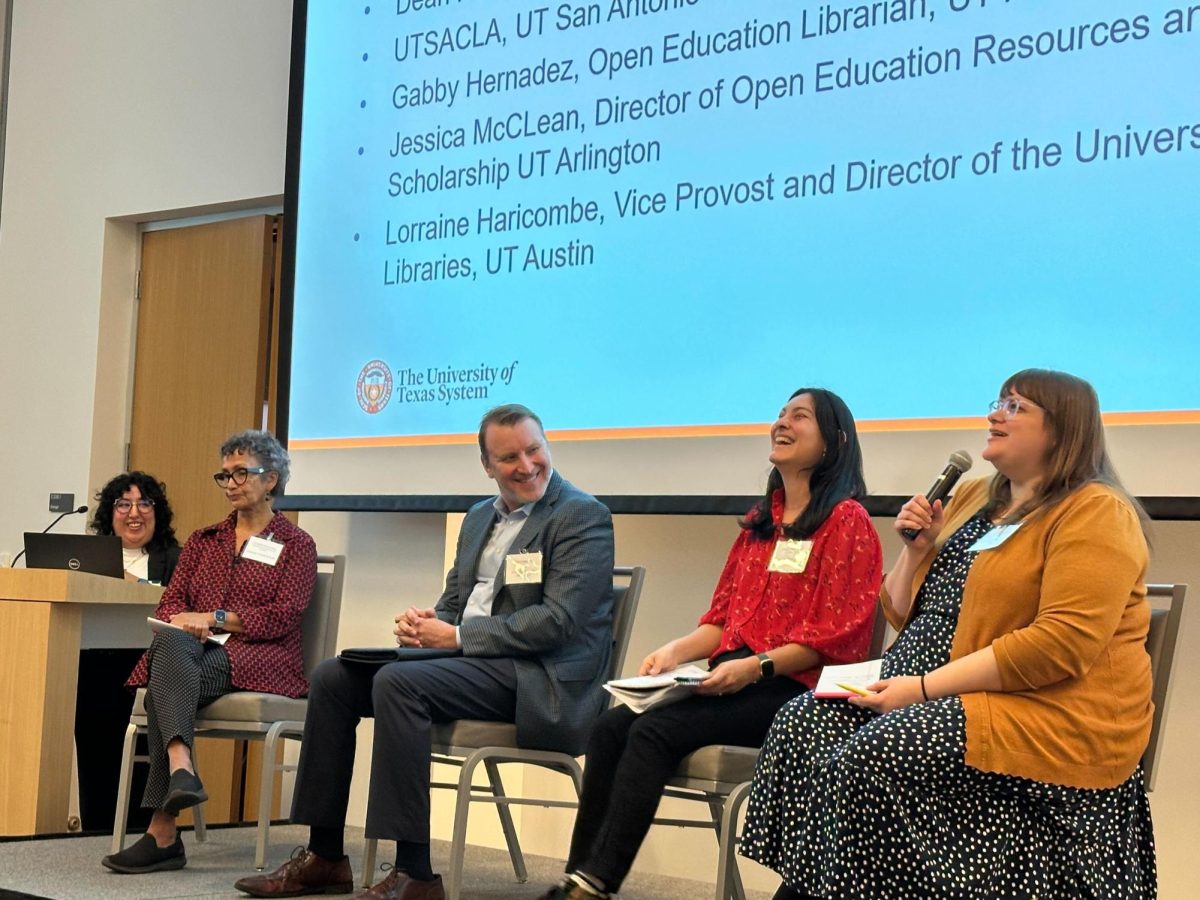In the United States, where courts have worked against President Donald Trump’s Refugee Admissions Program and Congress has lacked the consensus needed to modify the Affordable Care Act, institutions have kept Trump in check, government professor Kurt Weyland said at a talk Wednesday.
Weyland and government professor Raul Madrid presented their new book “When Democracy Trumps Populism European and Latin American Lessons for the United States” with government associate professor Bethany Albertson and government professor Daron Shaw.
After defining populism as using popularity and disorganization to undermine institutions, Weyland described the first of four factors that allow populists to impede democracy: institutional weakness.
“In institutions with weaker checks and balances than in the U.S., the parliamentary system can be subjected to more corrosion,” Weyland said.
Weyland said political parties are a second factor that when strong can block elections, but when weak can be influenced by donors.
Madrid said wide popularity is the third factor that allows populist leaders to carry out their aims. Citing Trump’s minimal popularity among women, educated voters and urbanity, Madrid said Trump’s popularity was far from granting him the wide-sweeping control of some Latin American leaders.
“The fourth factor is Trump’s management of the economy,” Madrid said. “Trump took office in an economy that was in relatively good shape, low levels of unemployment, good levels of growth, making it harder to represent a savior of the economy.”
Madrid said while not everyone experienced a prosperous pre-Trump economy, the U.S. lacked the egregious inflation of economies like Venezuela’s.
The discussion continued with commentary from Albertson and Shaw.
“One fundamental flaw (of applauding checks and balances) is that it gives (Trump) legitimacy, implying he’s part of the system,” Albertson said. “But Congress is scared of the same primary voters who support (Trump) and lays down too much on issues of the Trump presidency.”
Government junior Oscar Guevara said his classes with Albertson and Shaw sparked his interest in democracy and the Trump administration.
“I’m interested in learning more about Donald Trump given his distinct presidency,” Guevara said.
The event was held by the Teresa Lozano Long Institute of Latin American Studies in the Texas Union Building.
“We’re excited to celebrate a book detailing a topic of such great significance, especially under the Trump presidency,” said Paloma Diaz, the scholarly programs director at the institute.

